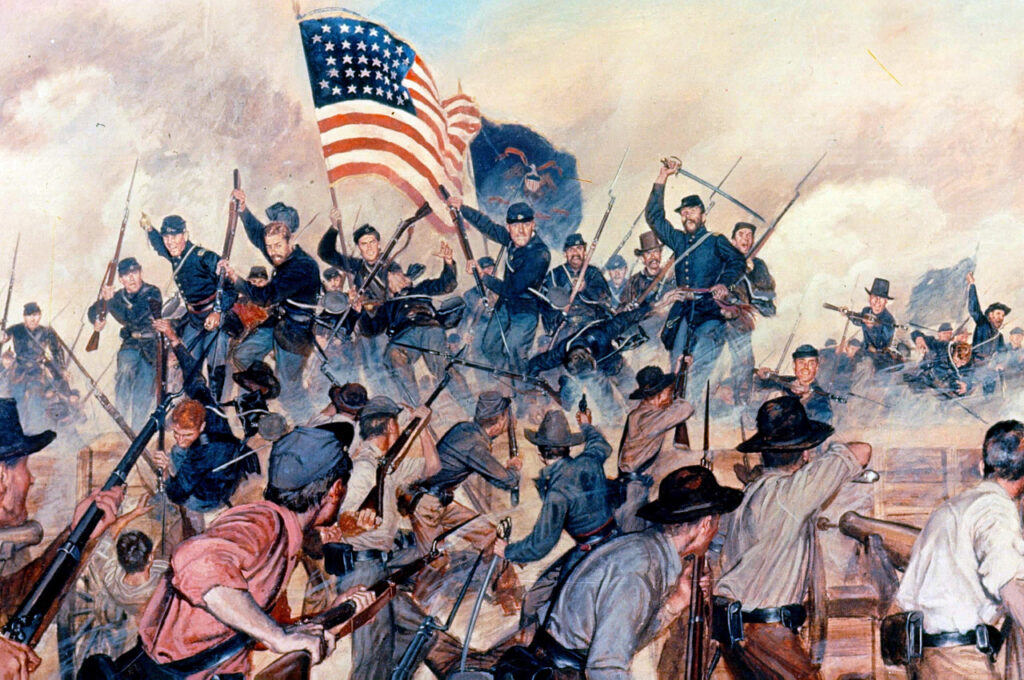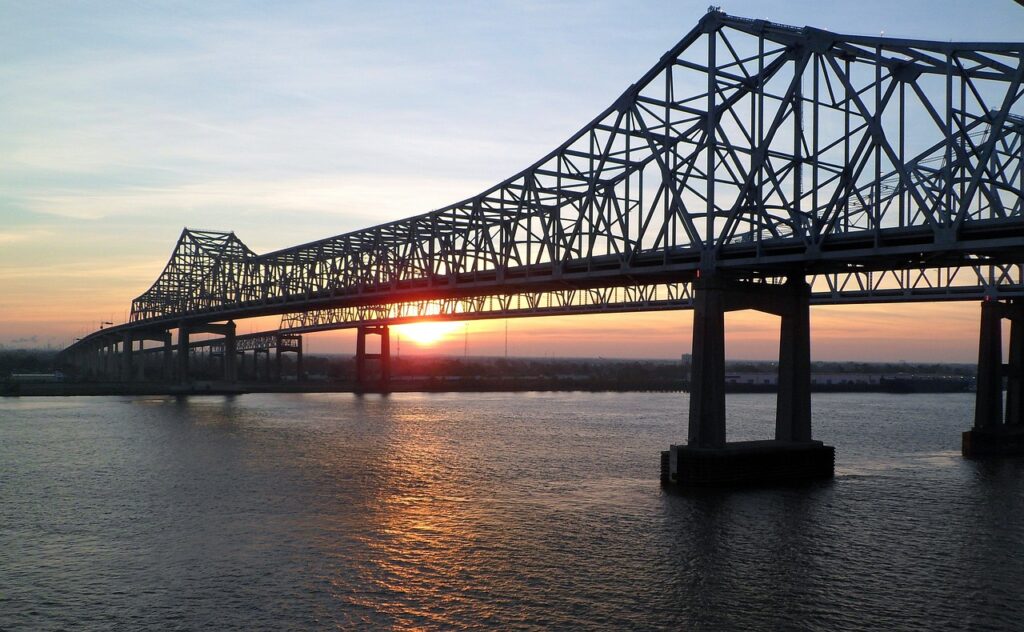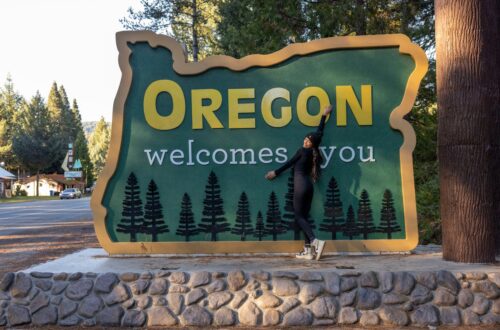
Interesting Facts About Mississippi (The Best 50)
Facts About Mississippi
Mississippi, known as the Magnolia State, is a treasure trove of history, culture, and natural beauty. As the 20th state to join the United States, Mississippi boasts a fascinating blend of historical significance and contemporary charm. From the mighty Mississippi River to the cultural tapestry woven by its diverse inhabitants, there are countless interesting facts about Mississippi that highlight its unique place in American history. This article will explore these facts, shedding light on the state’s many intriguing aspects and offering insights into what makes Mississippi so special.
Facts About Mississippi: A Historical Overview
The Early Days
Mississippi’s history is deeply rooted in the presence of Native American tribes, who were the first people to inhabit the region. These early inhabitants made significant contributions to the culture and development of the state. The first permanent settlement in present-day Mississippi was established by the French in the early 1700s. This settlement laid the foundation for the diverse cultural landscape that Mississippi is known for today.
Statehood and Beyond
Mississippi became the 20th state to join the United States on December 10, 1817. Its path to statehood was marked by numerous events, including conflicts and negotiations with Native American tribes, the impact of European colonization, and the influence of African Americans who played a crucial role in shaping the state’s identity. The name of the state, derived from the Mississippi River, reflects its geographical and cultural significance.
The American Civil War and Reconstruction
During the American Civil War, Mississippi was a key battleground, and its cities and towns witnessed significant battles and skirmishes. Union soldiers occupied parts of the state, and the aftermath of the war saw Mississippi grappling with the challenges of Reconstruction. This period was pivotal in shaping the state’s social and economic landscape, laying the groundwork for future progress and development.

Notable Residents and Cultural Contributions
Literary Legends: William Faulkner and Eudora Welty
Mississippi has been home to some of the most influential literary figures in American history. William Faulkner, a Nobel Prize-winning author, and Eudora Welty, a Pulitzer Prize-winning writer, both hailed from Mississippi. Their works have left an indelible mark on American literature, offering profound insights into the human condition and the complexities of life in the South.
The King of Rock and Roll: Elvis Presley
Elvis Presley, known as the King of Rock and Roll, was born in Tupelo, Mississippi. His music and cultural impact have made him an enduring icon worldwide. Visiting his birthplace offers a glimpse into the early life of one of the most significant figures in music history.
Civil Rights Movement
Mississippi played a significant role in the Civil Rights Movement, with many pivotal events taking place within its borders. The state’s struggle for equality and justice has been a crucial part of its history, highlighting the bravery and resilience of those who fought for civil rights.
Music and the Mississippi Delta
The Mississippi Delta is often referred to as the birthplace of the blues. This region’s fertile soil and rich cultural heritage have given rise to a musical tradition that has influenced countless artists and genres. B.B. King, one of the most famous blues musicians, hailed from this area, contributing to Mississippi’s legacy as a musical powerhouse.
Higher Education: University of Mississippi Medical Center
The University of Mississippi Medical Center is renowned for its contributions to medical research and education. It is notably associated with Dr. James D. Hardy, who performed the world’s first human lung transplant. This institution continues to be a leader in medical advancements and healthcare education.
Natural Wonders and Wildlife

The Mighty Mississippi River
The Mississippi River forms a major part of the state’s geography, influencing its economy, culture, and environment. As the second-longest river in North America, it provides a crucial waterway for commerce and recreation. The river’s impact on the state cannot be overstated, earning it the nickname “Father of Waters.”
Diverse Wildlife and Natural Attractions
Mississippi is home to a wide variety of wildlife, including the white-tailed deer, American alligator, and numerous species of birds. The Mississippi Gulf Coast offers stunning views of the Gulf of Mexico and is a popular destination for outdoor enthusiasts. Hancock County is known for its rich biodiversity, including a variety of fish species and other marine life.
Mississippi’s Contributions to American Culture
The Birthplace of Iconic Figures
Oprah Winfrey: Media Mogul
Oprah Winfrey, one of the most influential media personalities in the world, was born in Kosciusko, Mississippi. Her rise from humble beginnings to becoming a global icon is a testament to the potential for success regardless of one’s origins. Oprah’s impact on television and philanthropy has left a lasting legacy, making her one of the most beloved figures to emerge from Mississippi.
Tennessee Williams: Playwright Extraordinaire
Tennessee Williams, another luminary from Mississippi, is celebrated for his contributions to American theater. His plays, such as “A Streetcar Named Desire” and “The Glass Menagerie,” have become classics, showcasing the depth and complexity of human emotions. Williams’ works are a crucial part of Mississippi’s rich cultural heritage.
Mississippi and the Music Scene

The Delta Blues
The Delta Blues, a genre that originated in the Mississippi Delta, has profoundly influenced American music. This style of blues is characterized by its soulful and melancholic sound, often reflecting the struggles and triumphs of African Americans in the Deep South. The Mississippi Delta has produced legendary musicians like B.B. King, Muddy Waters, and Robert Johnson, whose contributions have shaped the landscape of modern music.
The International Ballet Competition
Jackson, the capital city of Mississippi, hosts the prestigious International Ballet Competition. This event, held every four years, attracts top dancers from around the world, highlighting the state’s commitment to promoting the arts. The competition has helped put Mississippi on the global cultural map, showcasing its dedication to excellence in the performing arts.
Fascinating Historical Events
The Civil Rights Movement
Mississippi was a crucial battleground during the Civil Rights Movement. Landmark events, such as the Freedom Summer of 1964, brought national attention to the struggle for racial equality. The state saw significant activism and resistance, with figures like Medgar Evers playing pivotal roles. These efforts were instrumental in advancing civil rights across the United States.
Hurricane Katrina and Hurricane Camille
Mississippi’s resilience has been tested by natural disasters like Hurricane Katrina in 2005 and Hurricane Camille in 1969. These hurricanes caused widespread devastation along the Mississippi Gulf Coast, impacting countless lives. The state’s recovery efforts showcased the strength and unity of its people in the face of adversity.
The Birth of the Teddy Bear
An interesting fact about Mississippi is its connection to the creation of the teddy bear. In 1902, President Theodore Roosevelt was on a hunting trip in the state when he famously refused to shoot a captured bear. This act of compassion inspired a toy maker to create the teddy bear, which has since become a beloved children’s toy worldwide.
Mississippi’s Unique Natural Environment

The Mississippi River and its Tributaries
The Mississippi River, often referred to as the “Father of Waters,” plays a vital role in the state’s ecosystem and economy. This river, along with its numerous tributaries, supports a diverse range of fish species and other wildlife. The Great River Road, which follows the Mississippi River, offers scenic views and a glimpse into the state’s natural beauty.
Rich Biodiversity
Mississippi’s diverse landscapes support a wide variety of plant and animal species. The state is home to numerous species of birds, including bald eagles, which can often be seen soaring above the Mississippi River. The fertile soil of the region supports robust agriculture, making Mississippi a significant producer of farm-raised catfish and other agricultural products.
Outdoor Activities and Attractions
Mississippi offers numerous outdoor activities for nature enthusiasts. The state’s rivers, lakes, and forests provide ample opportunities for fishing, hunting, and hiking. The Pearl River and Lake Itasca are popular spots for recreational activities, while the Mississippi Gulf Coast attracts visitors with its beautiful beaches and vibrant marine life.
Facts About Mississippi: Frequently Asked Questions
What is the capital of Mississippi?
The capital of Mississippi is Jackson.
What is the Mississippi Delta known for?
The Mississippi Delta is known for being the birthplace of the Delta Blues, a genre of music that has had a significant influence on American culture.
How did the teddy bear originate in Mississippi?
The teddy bear originated from an incident involving President Theodore Roosevelt during a hunting trip in Mississippi, where he refused to shoot a captured bear, inspiring the creation of the toy.

What are some famous landmarks in Mississippi?
Some famous landmarks in Mississippi include the Mississippi River, the Vicksburg National Military Park, and the birthplace of Elvis Presley in Tupelo.
What role did Mississippi play in the Civil Rights Movement?
Mississippi was a key battleground during the Civil Rights Movement, with significant events like the Freedom Summer of 1964 and activism by figures such as Medgar Evers.
Mississippi’s Unique Cuisine and Culinary Traditions

Southern Comfort Food
Mississippi is renowned for its rich culinary traditions, deeply rooted in Southern comfort food. Dishes like fried catfish, cornbread, and collard greens are staples in the state’s cuisine, reflecting a blend of African American, Native American, and European influences. These dishes are not only delicious but also offer a taste of Mississippi’s cultural heritage.
The Birthplace of Root Beer
Another interesting fact about Mississippi is that it is home to the birthplace of root beer. In 1919, Edward Barq, Sr. created the first batch of Barq’s Root Beer in Biloxi, Mississippi. This refreshing beverage has since become a beloved drink across the United States, adding to the state’s culinary legacy.
Farm-Raised Catfish Capital
Belzoni, Mississippi, is known as the “Catfish Capital of the World.” The state’s fertile soil and abundant water resources create the perfect conditions for raising farm-raised catfish. Mississippi leads the nation in catfish production, providing a significant contribution to the local economy and offering a delicious product enjoyed nationwide.
The Impact of Mississippi on American History
The American Revolution and Beyond
Mississippi played a significant role in the American Revolution and the subsequent development of the United States. Figures like Oliver Pollock, who is credited with creating the dollar sign, contributed to the revolutionary cause. Pollock’s financial support was crucial in aiding the fight for American independence.
The Mississippi Territory and Statehood
The creation of the Mississippi Territory in 1798 marked the beginning of its journey toward statehood. Mississippi became the 20th state on December 10, 1817, joining the union and expanding the growing United States. This milestone paved the way for the development of its rich cultural and historical landscape.
The American Civil War
Mississippi’s role in the American Civil War was significant, with many battles fought on its soil. The state was a key player in the Confederacy, and cities like Vicksburg were crucial strategic points. The Siege of Vicksburg in 1863 was a turning point in the war, leading to the Union’s control of the Mississippi River and significantly impacting the war’s outcome.

Reconstruction and the Civil Rights Movement
Following the Civil War, Mississippi underwent a challenging period of Reconstruction. The state faced numerous social and economic changes as it rebuilt from the war’s devastation. During the 20th century, Mississippi became a focal point in the Civil Rights Movement, with significant events and leaders emerging from the state. This period highlighted the struggle for equality and the enduring spirit of those fighting for justice.
Notable Figures and Achievements
Dr. James D. Hardy and Medical Milestones
Dr. James D. Hardy, a pioneering surgeon at the University of Mississippi Medical Center, performed the world’s first human lung transplant in 1963. This groundbreaking procedure marked a significant achievement in medical history, showcasing Mississippi’s contributions to advancements in healthcare.
Literary Giants: William Faulkner and Eudora Welty
Mississippi has produced some of the greatest literary talents in American history. William Faulkner and Eudora Welty, both Pulitzer Prize winners, are celebrated for their profound and evocative writings. Their works provide deep insights into Southern life and have earned them a lasting legacy in the literary world.
Influential Musicians: B.B. King and Elvis Presley
B.B. King, known as the “King of the Blues,” and Elvis Presley, the “King of Rock and Roll,” both hailed from Mississippi. Their music has had a lasting impact on the world, influencing countless artists and shaping the course of musical history. Mississippi’s contribution to the music industry is immense, with these legends leading the way.
Cultural Celebrations and Events
Mississippi hosts numerous cultural events and festivals that celebrate its rich heritage. The Mississippi Delta Blues Festival, the International Ballet Competition in Jackson, and the annual Catfish Festival in Belzoni are just a few examples of how the state honors its diverse cultural influences and traditions.

Facts About Mississippi: Frequently Asked Questions
What is the significance of the Mississippi River?
The Mississippi River is one of the most important rivers in North America, playing a crucial role in the state’s economy, culture, and environment. It supports diverse wildlife and provides a vital waterway for commerce.
Who are some famous people from Mississippi?
Famous people from Mississippi include Oprah Winfrey, Elvis Presley, William Faulkner, Eudora Welty, and B.B. King. These individuals have made significant contributions to various fields, including media, music, and literature.
How did the Civil Rights Movement impact Mississippi?
The Civil Rights Movement had a profound impact on Mississippi, with the state being a central location for significant events and activism. The movement helped bring about crucial changes in laws and social attitudes towards racial equality.
What are some popular tourist attractions in Mississippi?
Popular tourist attractions in Mississippi include the Mississippi River, Elvis Presley’s birthplace in Tupelo, the Vicksburg National Military Park, and the Mississippi Gulf Coast. These sites offer visitors a glimpse into the state’s rich history and natural beauty.
Mississippi’s Natural Beauty and Outdoor Activities

The Mississippi Gulf Coast
The Mississippi Gulf Coast is a stunning region that offers a mix of beautiful beaches, vibrant communities, and a rich maritime heritage. Stretching along the Gulf of Mexico, this area is perfect for those who love sun, sand, and sea. Visitors can explore the charming coastal towns, indulge in fresh seafood, and participate in various water activities such as fishing, boating, and kayaking. The Mississippi Gulf Coast also features numerous casinos and entertainment venues, making it a popular destination for tourists.
Parks and Natural Reserves
Mississippi is home to several state parks and natural reserves that showcase the state’s diverse landscapes and wildlife. For example, the Natchez Trace Parkway is a scenic drive that spans over 440 miles, offering breathtaking views of forests, rivers, and historical sites. Tishomingo State Park, located in the foothills of the Appalachian Mountains, provides excellent opportunities for hiking, rock climbing, and bird watching. Additionally, the Pascagoula River, one of the last free-flowing rivers in the contiguous United States, is a haven for wildlife enthusiasts, with a rich variety of species of birds, fish, and other animals.
Hunting and Fishing
Hunting and fishing are popular activities in Mississippi, thanks to its abundant wildlife and well-managed natural resources. The state is known for its white-tailed deer and wild turkey populations, making it a prime destination for hunters. Additionally, the rich waters of the Mississippi River and its tributaries, as well as the Gulf of Mexico, provide excellent fishing opportunities. Anglers can catch a wide range of fish species, including bass, catfish, and crappie. Mississippi’s hunting and fishing traditions are an integral part of its cultural heritage and continue to draw enthusiasts from around the country.
The Great River Road
The Great River Road is a scenic byway that follows the course of the Mississippi River from its source at Lake Itasca in Minnesota to the Gulf of Mexico. In Mississippi, this road offers travelers a chance to explore charming river towns, historic sites, and beautiful natural landscapes. The journey along the Great River Road provides insight into the state’s history, culture, and the vital role of the Mississippi River in shaping the region.
Mississippi’s Economic Contributions

Agriculture and Farming
Agriculture is a cornerstone of Mississippi’s economy, with the state being a major producer of various crops and livestock. The fertile soil and favorable climate make it ideal for farming. Mississippi is particularly known for its production of cotton, soybeans, rice, and corn. Additionally, the state is the largest producer of farm-raised catfish in the United States. The agricultural sector not only contributes significantly to the state’s economy but also supports rural communities and preserves traditional farming practices.
Industrial and Technological Advances
Mississippi has made significant strides in industrial and technological development. The state has a growing manufacturing sector, producing goods such as automobiles, furniture, and shipbuilding components. Mississippi is also investing in technological advancements, particularly in the aerospace and defense industries. The Stennis Space Center, a NASA rocket testing facility located in Hancock County, is a key player in the state’s technological landscape, contributing to space exploration and research.
Tourism and Hospitality
Tourism is a vital part of Mississippi’s economy, drawing visitors with its rich history, cultural attractions, and natural beauty. Popular destinations like the Mississippi Gulf Coast, Natchez, and Vicksburg attract tourists year-round. The state’s numerous festivals, historical landmarks, and outdoor activities provide a wide range of experiences for visitors. The hospitality industry, including hotels, restaurants, and entertainment venues, thrives on the influx of tourists, contributing to the state’s economic growth.
Education and Research
The University of Mississippi
The University of Mississippi, commonly known as Ole Miss, is one of the state’s premier educational institutions. It offers a wide range of academic programs and is known for its strong emphasis on research and innovation. The university’s Medical Center in Jackson is particularly renowned for its contributions to medical science, including the first human lung transplant performed by Dr. James D. Hardy. Ole Miss also plays a significant role in the cultural and intellectual life of the state, hosting various events, lectures, and exhibitions.
Mississippi State University
Mississippi State University (MSU) is another major educational institution in the state, known for its research in agriculture, engineering, and business. MSU’s Extension Service provides valuable resources and support to farmers and rural communities, helping to advance agricultural practices and improve economic opportunities. The university also emphasizes sustainability and environmental research, contributing to the state’s efforts to preserve its natural resources.
Facts About Mississippi: Frequently Asked Questions

What is the primary industry in Mississippi?
Agriculture is a primary industry in Mississippi, with the state being a leading producer of crops like cotton, soybeans, and rice, as well as farm-raised catfish.
What are some major cultural events in Mississippi?
Major cultural events in Mississippi include the Mississippi Delta Blues Festival, the International Ballet Competition in Jackson, and the annual Catfish Festival in Belzoni.
How has Mississippi contributed to medical research?
Mississippi has made significant contributions to medical research, notably through the University of Mississippi Medical Center, where Dr. James D. Hardy performed the world’s first human lung transplant.
What is the significance of the Great River Road in Mississippi?
The Great River Road follows the course of the Mississippi River and offers travelers a scenic route through the state’s historic towns, natural landscapes, and cultural sites.
Mississippi’s Rich Cultural Heritage
Native American Tribes and Early History
Mississippi’s cultural heritage is deeply influenced by its Native American tribes. The Choctaw and Chickasaw tribes were among the first people to inhabit the region, contributing significantly to its cultural and historical landscape. These tribes had well-established societies with rich traditions and played a crucial role in the early development of the state.
The Civil Rights Movement
Mississippi’s history is profoundly marked by its role in the Civil Rights Movement. Significant events, such as the assassination of civil rights leader Medgar Evers and the Freedom Summer of 1964, brought national attention to the state’s struggles and triumphs in the fight for equality. The Mississippi Civil Rights Museum in Jackson is a testament to the state’s turbulent past and a source of education and inspiration for future generations.
The Delta Blues and its Global Impact
The Mississippi Delta is renowned as the birthplace of the Delta Blues, a genre that has had a lasting impact on music worldwide. Legendary musicians like Robert Johnson, Muddy Waters, and B.B. King began their careers in the Delta, using their music to express the hardships and hopes of African Americans in the early 20th century. The Delta Blues Museum in Clarksdale offers a deep dive into the history and influence of this iconic music genre.
Literary Giants from the Magnolia State

Mississippi has produced some of America’s most celebrated literary figures. William Faulkner and Eudora Welty, both from Mississippi, have left an indelible mark on American literature. Faulkner’s intricate narratives and Welty’s poignant storytelling provide profound insights into Southern life and human nature. Their works continue to be studied and admired for their literary excellence and cultural significance.
The Role of Festivals and Events
Mississippi hosts a variety of festivals and events that celebrate its rich cultural heritage. The Natchez Spring Pilgrimage, the Delta Blues Festival, and the Neshoba County Fair are just a few examples of events that draw visitors from around the world. These festivals highlight the state’s traditions, music, food, and community spirit, offering a unique glimpse into Mississippi’s vibrant culture.
Modern-Day Mississippi
Education and Innovation
Mississippi continues to invest in education and innovation. Institutions like the University of Mississippi and Mississippi State University are at the forefront of research and development, contributing to advancements in various fields. The University of Mississippi Medical Center, for instance, is renowned for its groundbreaking work in medical research, including the world’s first human lung transplant.
Economic Development
Mississippi’s economy is diverse, with key industries including agriculture, manufacturing, and tourism. The state is the leading producer of farm-raised catfish and has a growing manufacturing sector. Tourism also plays a vital role, with visitors flocking to the state’s historical sites, natural attractions, and cultural events.
The Resilience of the Magnolia State
Mississippi has faced numerous challenges, from natural disasters like Hurricane Katrina to economic hardships. However, the resilience and determination of its people have always shone through. The state’s recovery and rebuilding efforts are a testament to the strength and spirit of its communities.
Facts About Mississippi Conclusion
Mississippi, with its rich history, diverse culture, and natural beauty, offers a fascinating tapestry of experiences. From its early Native American roots to its pivotal role in the Civil Rights Movement, and from the soulful Delta Blues to the literary masterpieces of Faulkner and Welty, the Magnolia State is a place of profound significance. Its contributions to music, literature, and civil rights continue to influence and inspire, making it a unique and enduring part of the American story. Whether exploring its natural wonders, delving into its historical sites, or experiencing its cultural festivals, there are countless interesting facts about Mississippi that make it a captivating destination.
Now read Essential Facts About the West Region (The Best 33)
Facts About Mississippi: Frequently Asked Questions

What is the state bird of Mississippi?
The state bird of Mississippi is the Northern Mockingbird.
What is the capital city of Mississippi?
The capital city of Mississippi is Jackson.
How did the Mississippi River influence the state’s development?
The Mississippi River has been a crucial waterway for commerce and transportation, shaping the state’s economy and cultural development.
Who are some famous musicians from Mississippi?
Famous musicians from Mississippi include B.B. King, Muddy Waters, and Elvis Presley.
What are some significant historical sites in Mississippi?
Significant historical sites in Mississippi include the Vicksburg National Military Park, the Mississippi Civil Rights Museum, and the Delta Blues Museum.
How does Mississippi celebrate its cultural heritage?
Mississippi celebrates its cultural heritage through numerous festivals and events, such as the Natchez Spring Pilgrimage, the Delta Blues Festival, and the Neshoba County Fair.




